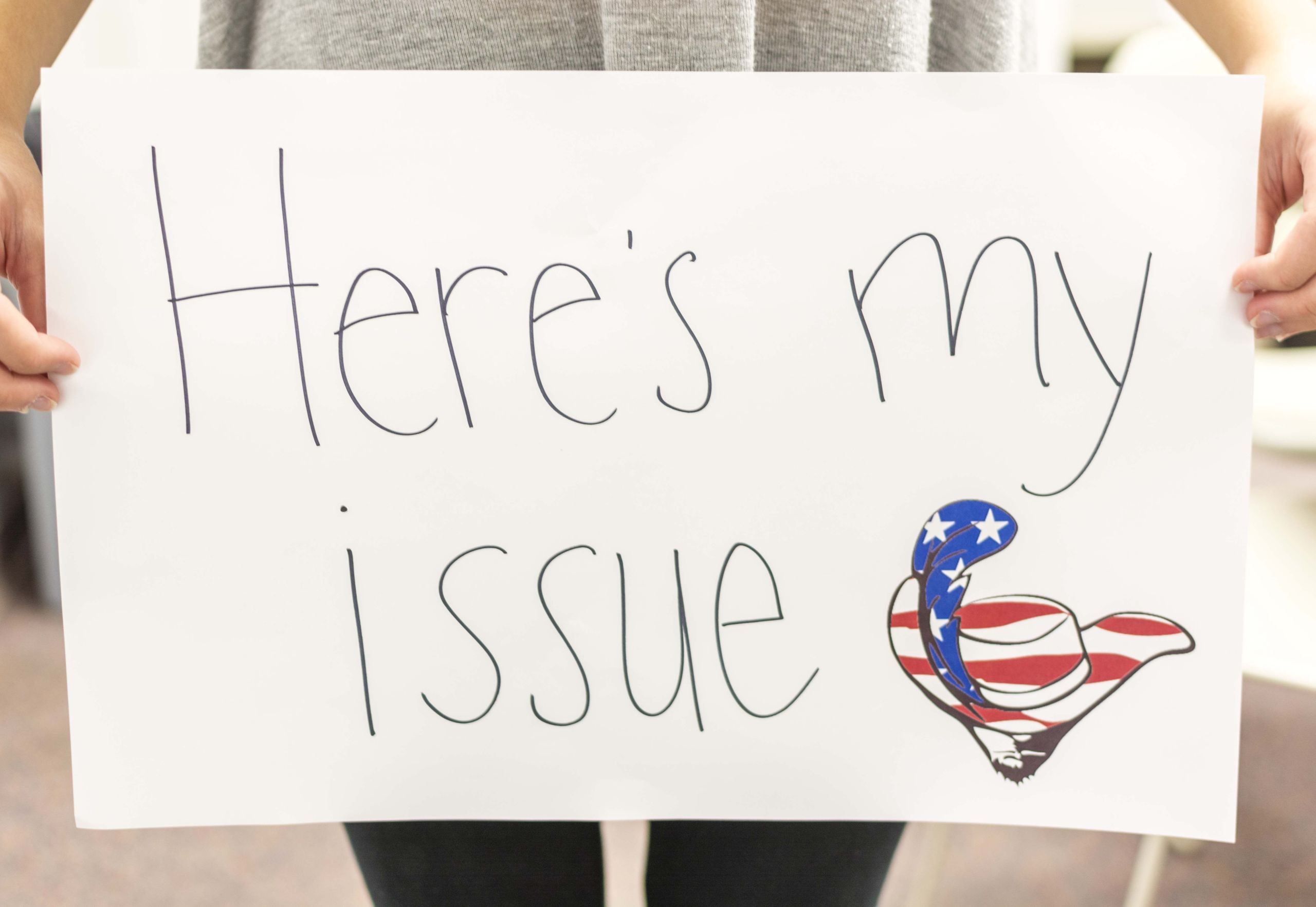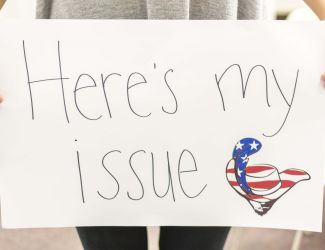Covering presidential elections on a college campus is tricky. Not only is it a challenge to navigate political jargon, but competing with major news stations can make it difficult for young journalists to stand out with their coverage.
Multiple Loquitur reporters shouldered this hefty task over the years. From covering presidential debates, conducting campus polls, and talking with party leaders, Cabrini’s newsroom stood up to the challenge of informing students about the most important issues on their ballots.
With Decision 2024 right around the corner, here are some of the ways the Loquitur covered presidential elections in the past.
Bridging the gap
One of the Loquitur’s first big attempts at presidential election coverage came in the fall of 1984, where the Loquitur staff embarked on a five-part series digging into that year’s presidential race. The campaign featured incumbent president Ronald Reagan (R) running against former vice president Walter Mondale (D).
For the final article in that series, titled “Perspectives on Politics,” reporter Gia Myers wrote about one of the debates. She watched the event live, taking notes about the important details, and created a bulleted list that laid out where the candidates stood on certain issues.
Myers, who graduated in 1987 with a degree in English communications, saw reporting on the debate as a way to inform an uninterested student body.
“[At the time] I felt that there was a general apathy among college students towards politics,” Myers said. “Today young people are very politically aware and active, but in the ’80s we had other priorities.”
The political climate of the 1980s was far different than now. Back then, it was easy to avoid mass media.
“Around campus in 1984, we didn’t connect with the candidates or the issues,” Myers said. “It didn’t seem pertinent to our lives at the time. We were focused on getting a job, and what our lives in our early 20s would look like.”
Knowing the position of her fellow classmates, Myers summarized the information in an easily digestible format. She broke down complicated topics like economic policy, the budget, environmental regulations, and the Soviet Union to activate the student body.
“I wrote the article with the intention of helping my fellow students understand what the issues were in this campaign so that hopefully it would encourage them to vote,” said Myers.
Era of student involvement
College-aged students in the 2000s became an important bloc of voters eager to make their voices heard. Reporters on campus reflected that interest, with unique approaches to building a politically active campus.
One of the most successful efforts happened in 2007, when then-editor-in-chief Kaitlin Lynch reported on the Democratic primary debate hosted at Drexel University. As part of this debate, Democratic National Committee Chair Howard Dean hosted a student-based press conference with college editors from around Philadelphia.
Lynch represented Cabrini alongside editors from Drexel, University of Pennsylvania, Temple University, and Villanova University.
The article focusses on Dean’s views on electing a Democratic candidate in 2008. With the Iraq War still in full swing and health care a concern, the piece argued for a change in leadership.
In recent years the Loquitur avoided open endorsements of presidential candidates. Instead, editorial staffs focused on informing the student body about the importance of voting and being an informed citizen.
In an editorial for the Nov. 1, 2012 edition of the paper, the staff urged undecided voters to research what candidates best fit their views.
“We at the Loquitur believe that students should take full advantage of voting this election,” the editorial reads. “Voting is important – but being an informed citizen is crucial. Educate yourself on these important issues. Ultimately life changing decisions will be left up to someone else, whether you believe in them or not.”

Also featured in this edition was a student survey of local colleges and who their students planned to vote for. The results showed a narrow edge for incumbent Democrat Barack Obama, but nearly a third of those surveyed claimed that they were undecided, not voting, or not registered.
A similar poll conducted by the 2016 editorial staff used an informal survey in Founders Hall to see how students felt about issues related to the presidential election. The results of this poll showed 90% of students who participated planned to vote.
Importance of voting
During the most recent presidential and midterm election cycles, the Loquitur pushed Cabrini students learn ballot issues and be active voters. In 2024, Editor-in-Chief Chris Perri wrote an article spotlighting the candidates in Pennsylvania’s attorney general race. The piece gives a brief overview of each candidate, their policies, and any endorsements.
Myers believes getting college students to vote is important. “Looking back, it made me realize that although many years have passed, we’re still grappling with the same issues,” she said. “It feels like we haven’t made a whole lot of progress, but I still have hope. I’m hopeful that we’ll find a way to make progress and I think younger people getting more interested in politics is awesome. It’s important to get [college students] active and confident to go to the polls to vote. I’m hoping that urgency will help us make things better in our country.”





